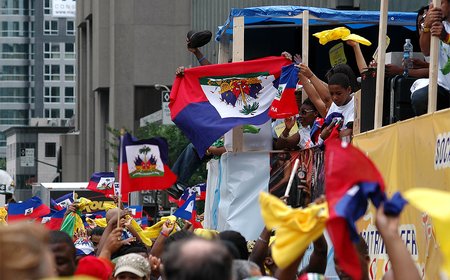Shrinking the justice gap: Rethinking access to justice for migrants in the Global South
This discussion paper was originally published via the United Nations University Centre for Policy Research (UNU-CPR). Learn more about their work here. The discussion paper is authored by Caroline Nalule, Heaven Crawley and Diana Zacca Thomaz.
Introduction
Access to justice is essential for the realization and assertion of an individual’s human rights in both domestic and international law. Access to justice is also recognized by the United Nations as integral to delivery of the Sustainable Development Goals (SDGs), inclusive growth, and the commitment to leave no one behind. This is evidenced by the inclusion of SDG target 16.3, which commits all Member States to “promote the rule of law at the national and international levels, and ensure equal access to justice for all.” Likewise, the Organisation for Economic Co-operation and Development (OECD) notes that the “inability to resolve legal problems diminishes access to economic opportunity, reinforces the poverty trap, and undermines human potential and inclusive growth.”
Despite this, there remains a significant ‘global justice gap,’ which undermines access to justice for individuals and delivery of the human development agenda. Approximately two-thirds of the world’s population – roughly 5.1 billion people – lack meaningful access to justice. They either cannot obtain justice for civil, administrative or criminal problems, are excluded from the opportunities that the law provides, or live in conditions of extreme injustice. This problem is particularly acute for migrants, many of whom face economic, social, cultural, linguistic, structural, institutional and, at times, legal barriers to accessing justice. Regardless of their nationality or reasons for moving, migrants enjoy the same fundamental human rights as all human beings under international human rights law. For some of those who decide to cross an international border, migration is a positive and empowering experience. Yet for many others, the lack of rights-based systems of migration governance – or the inability to access such systems where they exist – is creating a human rights crisis at borders and in countries of origin and destination.



